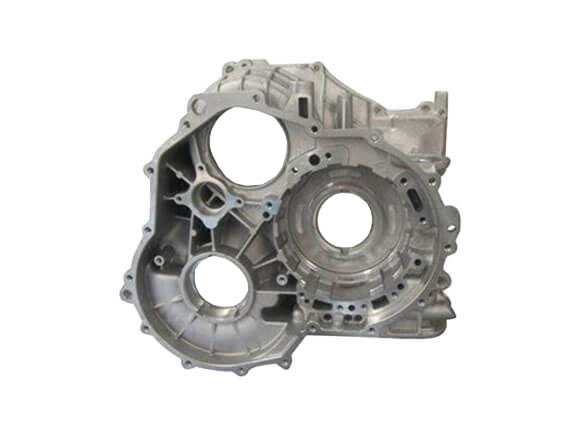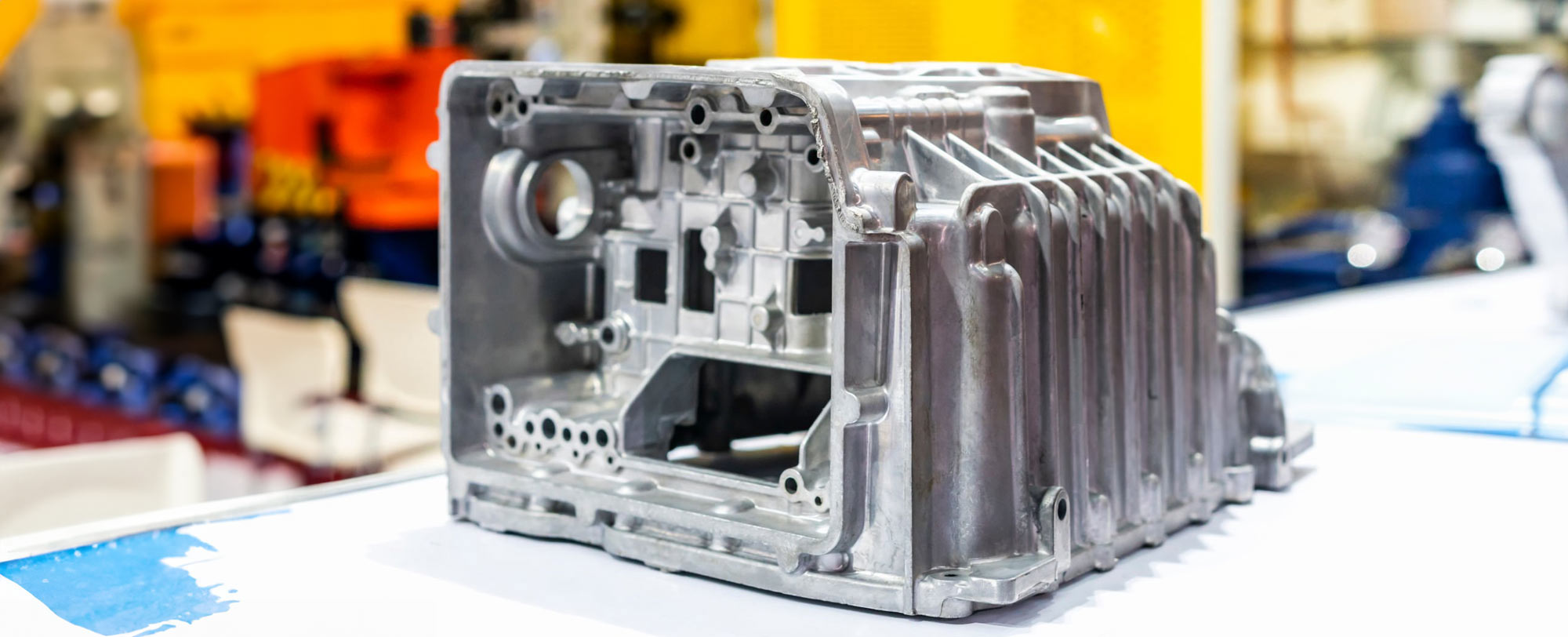Aluminum Foundry operations that balance technology and craftsmanship
Wiki Article
The Influence of Cutting-edge Shop Providers on Sustainable Production Practices
Innovative foundry solutions play a vital duty ahead of time sustainable production techniques. By incorporating reusing technologies and energy-efficient procedures, these services significantly decrease ecological influence. Factories can reclaim useful products, thereby decreasing dependence on virgin sources. As automation and lean manufacturing concepts gain traction, manufacturing effectiveness is optimized. Nevertheless, the complete extent of these improvements and their implications for the future of making remain to be discovered.The Function of Advanced Recycling Technologies in Foundries
Advanced reusing modern technologies are changing the landscape of factories by boosting material recuperation and minimizing waste. These innovative processes enable shops to redeem valuable metals and products from scrap, decreasing reliance on virgin sources. By incorporating advanced sorting, shredding, and melting strategies, shops can successfully draw out useful materials from thrown out products, thereby promoting a circular economic situation.These technologies sustain the production of top notch alloys and elements, ensuring that recycled materials fulfill strict market requirements. Because of this, factories are not only boosting their product efficiency yet also lowering the environmental impact related to standard manufacturing approaches
This shift in the direction of progressed reusing not only strengthens financial viability for foundries but also aligns with international sustainability objectives. Ultimately, the unification of these technologies represents a considerable progression in the quest for lasting manufacturing practices within the foundry market.
Energy Efficiency: Lowering Consumption in Production Processes
Power performance in making processes is crucial for sustainable procedures. Strategies such as process optimization techniques, renewable resource integration, and waste heat recovery play crucial functions in lessening energy usage. By concentrating on these locations, manufacturers can substantially reduce their environmental effect while boosting performance.Process Optimization Techniques
A considerable number of producing centers are progressively taking on process optimization methods to boost energy efficiency and decrease consumption. These methods involve assessing and fine-tuning production workflows, identifying bottlenecks, and applying automation to improve procedures. By leveraging information analytics, makers can keep an eye on power usage in real-time, allowing proactive modifications to decrease waste. Techniques such as Lean Manufacturing and Six Sigma emphasis on removing ineffectiveness and enhancing source allotment. Additionally, advanced modern technologies like Net of Things (IoT) sensors give insights into equipment performance, promoting predictive upkeep that stops power loss. On the whole, these procedure optimization strategies not only contribute to minimized power intake however likewise foster a society of continuous improvement within manufacturing environments, straightening functional techniques with sustainability goals.Renewable Resource Integration
Several production facilities are significantly incorporating renewable resource sources to boost overall energy performance and decrease dependence on conventional power grids. This adjustment includes the fostering of solar, wind, and biomass power, which can significantly decrease functional expenses and decrease carbon footprints. By making use of these lasting power sources, manufacturers not just lessen their environmental impact but additionally improve energy resilience. On top of that, incorporating renewable resource systems typically includes innovative modern technologies such as power storage and smart grid remedies, which enhance power usage and facilitate real-time surveillance. This integration supports makers in attaining governing conformity and meeting sustainability objectives while promoting innovation in production procedures. Eventually, sustainable energy assimilation stands for a pivotal change towards more lasting manufacturing methods and long-term practicality.Waste Heat Healing
Incorporating renewable resource resources sets the stage for further improvements in energy efficiency, specifically with the application of waste warmth healing systems. These systems catch excess thermal energy generated during producing procedures, which would otherwise be shed to the atmosphere. By repurposing this warmth, shops can substantially minimize their energy usage, lower operational costs, and minimize their carbon footprint. The recuperated warmth can be made use of for various applications, such as heating, power generation, or pre-heating basic materials. As a result, waste warm healing not only boosts energy efficiency yet also adds to a sustainable manufacturing design. Innovative foundry services that prioritize this innovation are leading the way for an environmentally responsible industrial landscape, straightening earnings with ecological stewardship.Utilizing Eco-Friendly Products in Shop Workflow
As the demand for sustainable manufacturing methods expands, foundries are progressively turning to environment-friendly materials to enhance their procedures. By including sustainable options, such as bio-based binders and recycled steels, factories can considerably lower their environmental footprint. These materials commonly need much less energy for handling and can minimize hazardous emissions throughout manufacturing.Furthermore, the fostering of eco-friendly materials not only straightens with governing requirements yet also fulfills consumer choices for greener products. Foundries are exploring cutting-edge alternatives, such as using natural ingredients that boost mold high quality while continuing to be safe.
The change to sustainable materials promotes a round economic situation by promoting resource reuse and decreasing waste. Furthermore, this modification can boost the total performance of shop operations, as green materials usually display remarkable residential properties, leading to improved item performance - aluminum casting. Ultimately, the application of eco-friendly products stands for a crucial step toward lasting production in the shop market

Advancements in Waste Management and Decrease Techniques
The change towards environmentally friendly materials in shop procedures leads the way for developments in waste administration and reduction techniques. Cutting-edge factory services are progressively embracing strategies that minimize waste generation and promote recycling. Techniques such as closed-loop systems permit for the reuse of products, substantially reducing the volume of waste produced during producing processes. Additionally, developments in purification and separation innovations make it possible for the effective healing of beneficial byproducts, which can be rehabilitated right into the manufacturing cycle.The execution of real-time monitoring systems supplies data-driven insights into waste generation patterns, assisting in informed decision-making to maximize source use. Foundries are also discovering biowaste remedies, converting natural waste into energy or usable products, further promoting sustainability. These advancements not just contribute to a circular economic situation but also improve the total ecological performance of foundry operations, highlighting the sector's dedication to decreasing its environmental impact.
The Influence of Automation on Lasting Manufacturing
While many industries go for sustainability, automation becomes an essential consider improving sustainable production methods within factories. By incorporating automated systems, shops can attain better performance, lower waste, and reduced energy intake. Automated procedures permit for specific control over manufacturing criteria, decreasing issues and revamp, which subsequently preserves sources.Automation helps with the monitoring of environmental influences, making it possible for real-time modifications that line up with sustainability goals. Advanced robotics and expert system can enhance material use, bring about considerable reductions in scrap and emissions
In addition, automated innovations promote more secure functioning atmospheres by handling unsafe jobs, thus boosting employee well-being while making certain conformity with environmental laws. Generally, the adoption of automation within shops not only simplifies procedures but additionally plays a critical duty ahead of time lasting manufacturing practices, adding to a more accountable industrial landscape.
Situation Studies: Effective Execution of Sustainable Shop Practices
Successful execution of sustainable methods in foundries can be shown through different study that highlight measurable outcomes and cutting-edge techniques. One notable example is a mid-sized foundry that took on a closed-loop water recycling system, decreasing water intake by 40% and decreasing wastewater generation. Additionally, this center transformed to using eco-friendly mold materials, which not only enhanced product high quality yet also enhanced worker safety.An additional significant situation included a huge factory integrating sustainable energy resources, such as solar panels, which balance out 30% of its energy needs. This initiative not just lowered functional expenses but likewise added to a substantial reduction in carbon exhausts.
A shop that applied lean production strategies reported a 25% rise in performance, leading to much less worldly waste and maximized manufacturing procedures. These situations collectively highlight the tangible benefits and sustainability developments achievable through innovative shop techniques.
Regularly Asked Concerns
Exactly How Do Ingenious Foundry Services Add To Total Sustainability Objectives?
Ingenious foundry services boost general sustainability goals by optimizing source use, reducing waste, and improving power effectiveness. These developments add to decrease carbon impacts and promote eco liable methods within the manufacturing field, supporting broader sustainability initiatives.What Are the Economic Conveniences of Embracing Sustainable Factory Practices?
Taking on lasting foundry practices can minimize operational costs, improve source performance, and boost competition. In addition, these methods can draw in eco-conscious consumers and financiers, ultimately bring about enhanced profitability and long-lasting economic feasibility for businesses.Exactly How Can Small Factories Implement Lasting Innovations Successfully?
Small factories can apply sustainable technologies efficiently by taking on energy-efficient technologies, enhancing source use, training team on sustainable techniques, working together with distributors for environmentally friendly products, and taking part in constant enhancement procedures to reduce waste and discharges.What Qualifications Exist for Sustainable Foundry Workflow?

Just How Do Customer Preferences Influence Sustainable Manufacturing in Foundries?
Consumer preferences greatly affect lasting production in factories by driving demand for environmentally friendly products. As consumers focus on sustainability, shops adjust their methods, incorporating greener technologies and materials to satisfy market expectations and enhance their affordable benefit.By repurposing this warm, foundries can considerably lower their power usage, lower functional expenses, and reduce their carbon footprint. Shops are likewise exploring biowaste solutions, transforming organic Precision aluminum casting waste into power or functional products, additionally promoting sustainability. By integrating automated systems, shops can accomplish better performance, decrease waste, and reduced power consumption. An additional considerable case entailed a huge foundry integrating sustainable energy sources, such as solar panels, which offset 30% of its power needs. Ingenious shop solutions enhance general sustainability goals by enhancing resource use, decreasing waste, and boosting energy performance.
Report this wiki page